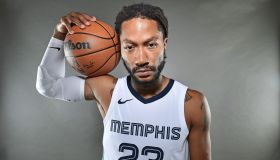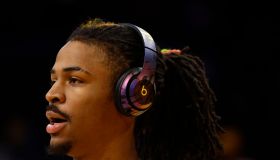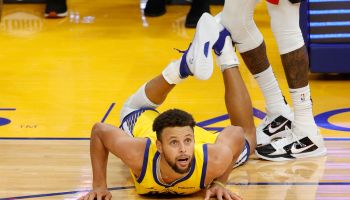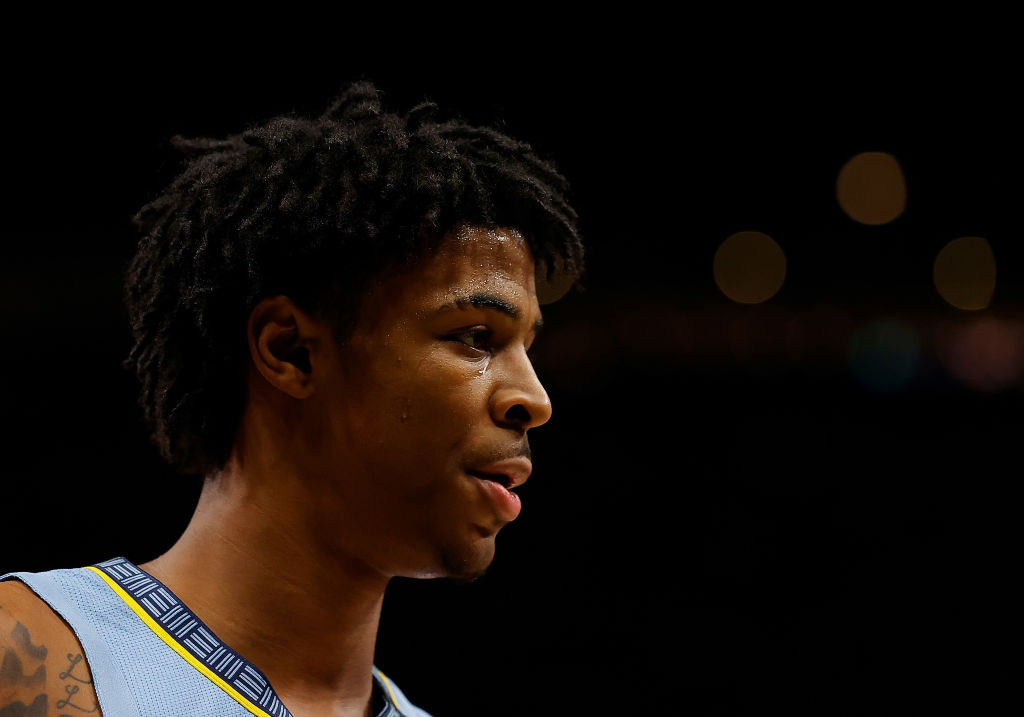
Source: Kevin C. Cox / Getty
Be honest: What do you really know about Memphis Grizzlies’ superstar point guard Ja Morant?
He’s turned Goliaths in the NBA to mannequins for his dunk posters? He won the 2020 Rookie of the Year award after chatter of giving it to New Orleans franchise rookie Zion Williamson? If that’s all, then you really don’t know Ja Morant, but you will when Academy Award-winning director of Unbanned: The Legend of AJ1 Dexton Deboree’s six-part docuseries Promiseland, about Morant’s first year in the league, is released.
Speaking with Cassius Life, Deboree says he began filming Morant for the doc hours before the rookie’s first regular-season game against the Miami Heat on October 23, 2019. He connected with the rising star weeks after the 2019 NBA Draft, thanks to Morant’s agent, after already wanting to tell the coming-of-age story of a player right before he reaches greatness.
“There was this itch in the back of my mind around this idea that we as an audience never really got super intimate, visceral, with an athlete on the real precipice of going from a regular kid to a superstar,” Deboree says. “I think people would be really fascinated as I am to know what it’s really like at the point when it’s really happening to you, and you’re experiencing it for the first time.”
From the first game of Morant’s NBA career until weeks after the end of the 2019-2020 NBA season, and during the four-month layoff in the middle due to the coronavirus pandemic, Deboree was there. He saw the family interactions at the core of Morant’s character that ESPN rarely shows. He saw the nerves the athlete suffered in his hotel room right before his first game that only Deboree and a few crew members witnessed. He also witnessed those private moments at home when Morant went to great lengths to still record his story, even when the pandemic had everyone distancing. And you will get to experience it all, too, when Promiseland comes out this year.
Before that, Deboree talks with us about how Morant dealt with Williamson getting more attention from the media, how the then-teenager found his voice on issues such as police brutality surrounding George Floyd’s murder, and what the world will learn about the Black role model Morant really is.
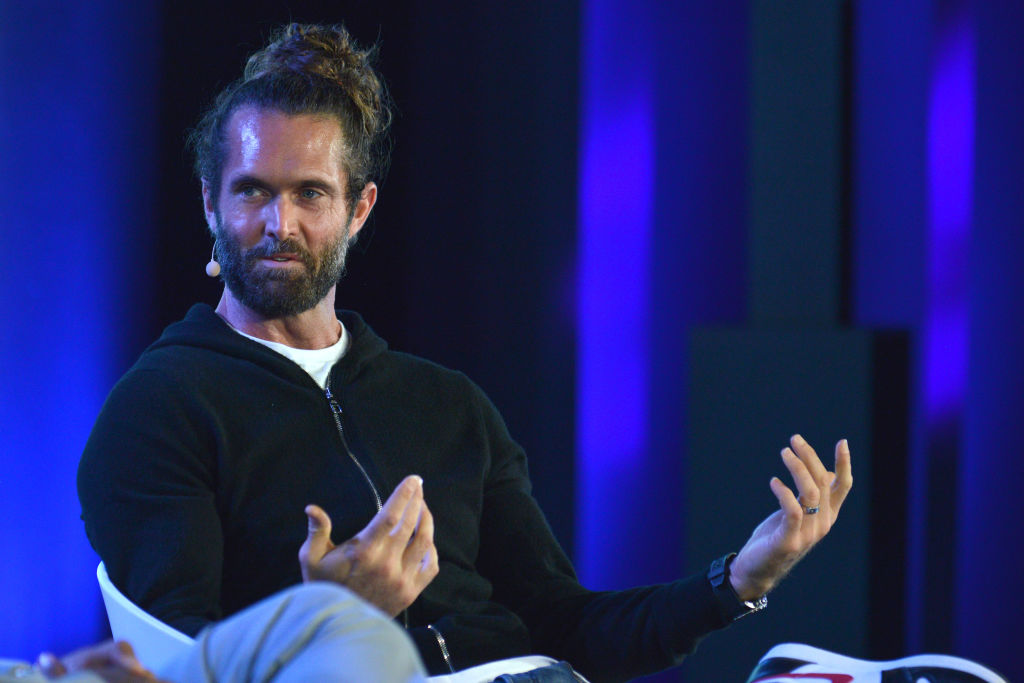
Source: Christian Alminana / Getty
When filming Promiseland, what did you observe about Morant’s first game that fans didn’t see?
The first moment I filmed him, he was alone in his hotel room with me and three other crew members. He shared what was going through his head at the moment before he stepped on an NBA floor in a regular-season game. He was still a 19-year-old kid, and not a superstar, or even an NBA player officially. At that moment, he’s vulnerable, scared, a little excited, thinking of being that 5-year-old kid who dreamed of being in the NBA, and now it’s happening. None of it has sunk in or been normal yet for him. It’s really profound. He gets really choked up about it and took a moment to go, “Holy shit! I’m about to be an NBA player.”
The NBA season took a four-month break due to the COVID-19 pandemic. How did that affect filming Morant’s story?
About two weeks into the pandemic, while we were shooting, we had a scheduled shoot and kept the day intact, but we couldn’t show up with the crew and travel. So I did an interview with him over Zoom. I was watching it while we were talking, and thinking, Shit, we just spent six months shooting on cinema cameras, caring about lighting, and making something really premium. Now I’m stuck with Zoom footage, which isn’t premium. (Laughs) I got together with my team to create a remote camera kit that we custom-built and sent out to his house. He set it up with his cousin, who is an aspiring filmmaker. We were able to remote into the kit and control it while we did an interview over Zoom. That ended up being the device we used for a bunch of guest stars. He had the kit with him in the bubble and shot him in his hotel room, at his house, and at different locations.
MUST READ: Kobe Bryant’s Childhood Basketball Hoop Sells For $37,000
Morant said in a recent interview the toughest thing he had to do in Promiseland was get his family to be open to speaking on camera. How did you make that work?
The whole experience was very life-changing for me. I’m close with his family and speak with them on a pretty regular basis. They’ve been extremely supportive of me and the process. I hope they feel the same way. They were extremely open. It took a minute to gain their trust, and for them to realize my intentions were to tell the most powerful, honest, authentic, and inspiring story I could tell. I’m not trying to dig up dirt. When they realized that over a handful of conversations, they really shared openly and fully. Some of the hardest conversations were really around George Floyd‘s death and Black Lives Matter because it’s hard to speak on, in general.
During the season, it appeared Morant wasn’t getting the same media attention as fellow rookie Zion Williamson. How does the doc show how he dealt with that?
He’s been so used to being under-considered and undervalued, he uses it as motivation. Every time he doesn’t get the attention, or someone asks him about Zion, he digests it, and it turns into a fire in his belly to prove these people dismissing him wrong. His season and the Rookie of the Year proved that.
Morant also made some strong comments about Black Lives Matter and police brutality during the summer. How did he find his voice for those issues?
He learns about his voice in the social conversation. He has a platform where millions of people follow him, and he realized, Hey, there’s something going on that I’m really passionate about. I personally have a responsibility to speak up and share my thoughts on behalf of my beliefs. Watching him navigate that is really fascinating. He came out and said something, people responded to it, and that empowered him to realize that people were listening and it mattered. That inspired him to keep speaking his truth.
What external factors of the world around him affected his story in the documentary?
The world is short on a lot of great Black role models. In the family, the role of fathers in the home and young Black men have had stereotypes that have been overplayed for a long time in movies and TV shows. He’s the epitome of breaking that down. He couldn’t be a nicer or more humble guy. His whole makeup as a character is an awesome example of positivity that comes out of the Black community.
What will the world learn about Morant as the person in Promiseland that we didn’t know?
The biggest thing that stands out is that he represents what the future superstar athlete can and will be, which is very different than some of the legends of the past. He’s equal parts total badass and completely humble. He’s conscious; he’s a man of faith; he’s a man of family. He has these really strong values, which come from his family unit that we explore really richly in the doc.
SEE ALSO:
KYRIE IRVING LEADS CHARGE FOR NBA CHANGING LOGO TO KOBE BRYANT: “BLACK KINGS BUILT THE LEAGUE”
MARSHAWN LYNCH BEASTS INTO CELEBRITY-BACKED MARIJUANA MARKET WITH 24K HERB, DODI BLUNTS

